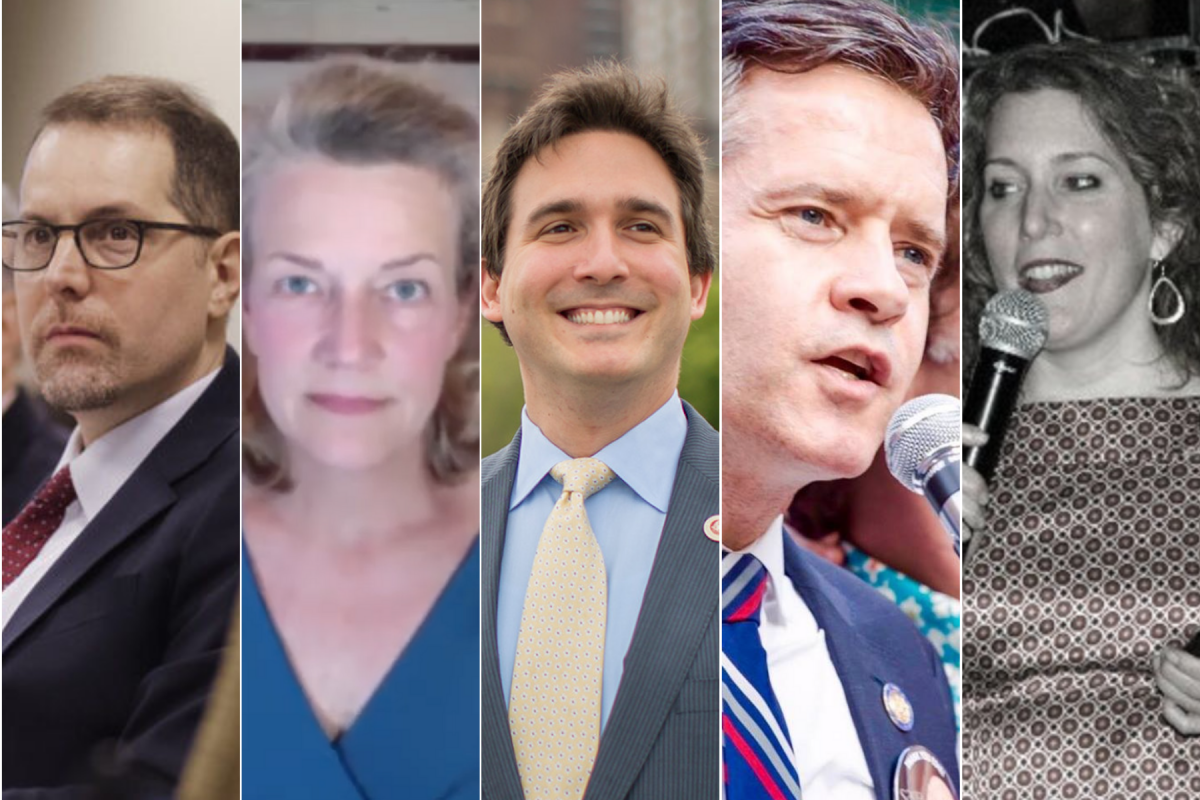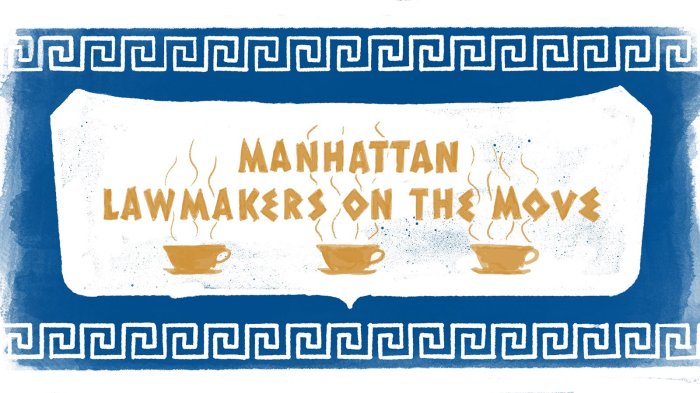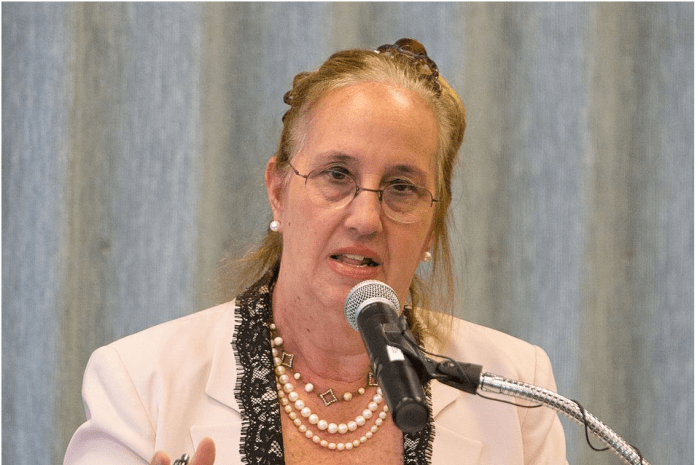As Manhattan Borough President Gale Brewer (D) nears the end of her final term, the race to find a successor has officially begun.
Last Thursday, Arena, in partnership with Empire State Indivisible, hosted the first 2021 Manhattan Borough President forum. The forum featured all five declared candidates, who were as follows: State Senator Brad Hoylman (D-Chelsea, Midtown); Councilmembers Mark Levine (D-Manhattan Valley, Manhattanville) and Ben Kallos (D-Yorkville, Lenox Hill); Community Board 7 Board Member Elizabeth Caputo; and Kimberly Watkins, President of District 3’s Community Education Council (CEC3). The moderators were Arena Co-Founder Ravi Gupta and Empire State Indivisible Co-Founder Kellie Leeson.
As Kallos pointed out, the borough of Manhattan is in a precarious position. New York is mired in several different crises at once, including COVID-19, mass unemployment, and the perpetual threat of climate change. Thus, it is of utmost importance that we have a BP who can guide us through these uncertain times. With that said, Kallos also made it clear that he wasn’t advocating a return to the status quo.
“New York City is at a precipice,” said Kallos. “Do we return to ‘normal’, where real estate and big businesses have been allowed to raze our affordable housing and hospitals, to build luxury condos? Or will we continue our momentum in taking back this city for all of us?”
Of the five candidates, three (Hoylman, Levine and Kallos) are career politicians with backgrounds primarily in political science and law. The remaining two – Watkins and Caputo – are “outsiders” who have never held full-time elected positions. Watkins introduced herself as a “public school mom” who has served on CEC3 for nearly six years, and has also successfully run two businesses. Meanwhile, Caputo, as an active Community Board member and a current worker at the World Economic Fourm, has a background in civic leadership and grassroots organizing; she asserted that her past work qualifies her for the office, due to her experience “building bridges”.
“I build bridges,” said Caputo. “Throughout my 25 years working and living in Manhattan, my entire adult life, I’ve bridged private and private, local and local, and neighborhood and neighborhood. Throughout all of these experiences, I have placed community, inclusivity and equity at the heart of everything I do.”
The candidates, all moderate liberals, found common ground on most of the issues that came up. For instance, they were unanimously against the de Blasio administration’s decision to convert several Upper West Side hotels into temporary homeless shelters. Levine, in particular, called the plan “indefensible”; he claimed that the Mayor has been “moving [the homeless] around like pawns” instead of trying to come up with a permanent, stable solution to the City’s homelessness crisis.
The candidates also agreed on building towards a greener, “car-free” Manhattan, whose streets belong solely to pedestrians, cyclists and public transit.
“We definitely need to pursue initiatives that create a plan for a car-free Manhattan,” said Watkins. “Or, at least, a reduction in the car culture that Manhattan can’t seem to get out of.”
This isn’t to say that they agreed on everything, though. Later on, the moderators brought up the City’s plan to close Rikers Island and instate four small, borough-based jails in its place. While all five were in favor of closing Rikers Island, Hoylman said he was “very skeptical” of any plan that involves building more jails.
“We need to talk about decarceration,” said Hoylman. “I carry legislation in Albany that would allow individuals 55 and older who have served 15 years the chance for parole. We need to talk about releasing individuals to their communities and their families. The thought that we would spend billions to create new confines for individuals is really disturbing.”
Regardless, the candidates and moderators all recognized that the next Manhattan Borough President will have their work cut out for them. Not only will they be replacing a familiar, beloved figure in Gale Brewer, but they’ll have to lead the borough through one of its toughest times.
“It’s a scary time for New York City,” said Ravi Gupta. “Things just aren’t working right now. The future is incredibly uncertain. The only way we can get this city back on track is by electing the right kind of leaders. As a resident of Manhattan who has called it home for quite some time, it’s really important that we get this Manhattan borough presidency right. We must elect a visionary leader who will look out for the people of Manhattan, and the people who come in and out of Manhattan, either for work or other reasons. I want to thank all the candidates for coming out here today.”








